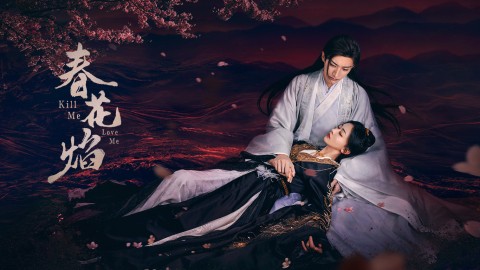I May Love You: A Sweet Romance Drama Set to Capture Young Audiences
On November 23rd, the TV drama "I May Love You" announced its release date, and it is scheduled to premiere on November 25th at 18:00 on both Mango TV and Tencent Video platforms. The series stars Wei Zhe Ming and Huang Ri Ying and tells a sweet romantic story about a domineering CEO and a proud and playful young girl.
The positioning of this TV drama is very clear, targeting young viewers, especially young female audiences, and even more specifically, young unmarried female audiences. Let's take a look at the plot synopsis: the series is an adaptation of the novel of the same name by author Mo Yan Chuan from the Jinjiang Literature City. It portrays the secret love story between Tang Yu, a proud producer, and Tang Xin, a mischievous rookie screenwriter.
When a long-lasting unrequited love encounters unexpected sweet moments, how will they navigate the challenges of love while working in the world of novels and films? How will the reserved and cold-faced CEO embark on a romantic pursuit, and how will the witty and eccentric screenwriter chase her dreams? This story of love and rivalry is about to begin, embarking on a delightful journey of mutual attraction.
In summary, the essence of the plot can be described as "The CEO falls in love with me, but I'm not weak." The greatest advantage of this sweet romance drama is that it only tarnishes people in the film and television industry and not others. As professionals in the film and television industry, it's commendable that we use our own industry as the background for storytelling. Previously, many sweet romance dramas liked to portray doctors and firefighters, and some even exploited military themes.
These practices are inappropriate and should be questioned. Sweet romance dramas are fictional, light-hearted, and meant to entertain and captivate young unmarried female audiences. They shouldn't tarnish serious and respectable professions. I sincerely hope that this point can be a consensus within the industry. On the other hand, compared to the currently popular drama "Love as a Business" on Mango TV, "I May Love You" actually tarnishes less serious professions.
Especially in "I May Love You," the film and television industry itself is the target, with one character being a screenwriter and the other a producer. It's like a comedy duo making jokes about their own spouses. After all, there are no outsiders, so instead of tarnishing other industries, it's better to make fun of our own. However, I need to emphasize that the term "tarnish" here should be understood neutrally, as an internal industry joke or self-deprecation.
The occupational backgrounds depicted in sweet romance dramas are not meant to actually tarnish anyone but rather to add humor and banter. Although the film and television industry progresses steadily, step by step, we present a glamorous image to the general audience. Therefore, in sweet romance dramas, portraying producers and screenwriters as narrative characters gives the established audience a sense of urban glamour.
Sweet romance dramas are all about creating dreams. In real life, producers and screenwriters are often workaholics or middle-aged individuals who neglect personal hygiene. In a relatively fictional workplace environment, as long as the main characters have professions, they can ignite the sparks of romance. The focus of these dramas lies in the playful interactions between the male and female leads.
I have always refrained from criticizing such dramas because the reason is simple: TV shows that depict love and relationships positively have a positive impact on young viewers. The sole purpose of sweet romance dramas is to make viewers feel that love is wonderful and encourage them to pursue their own romantic endeavors. Therefore, the criteria for evaluating sweet romance dramas should be simple: does it make viewers believe that love is beautiful?
In the past few days, some netizens criticized "Love as a Business" for having unrealistic dialogues. For example, after kissing scenes, some dialogues were described as vague and sentimental. However, I don't consider this to be a problem. After all, sweet romance dramas should make viewers believe that love is wonderful.


